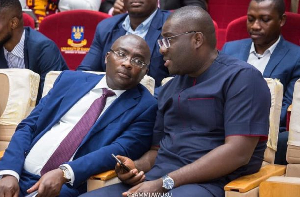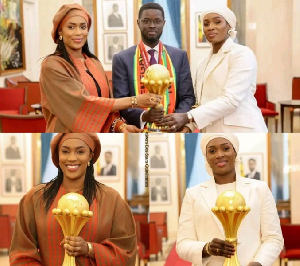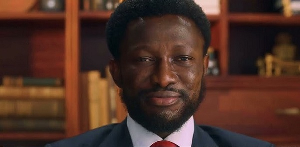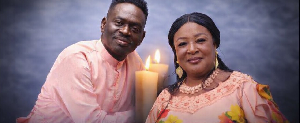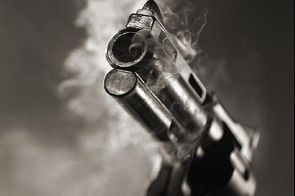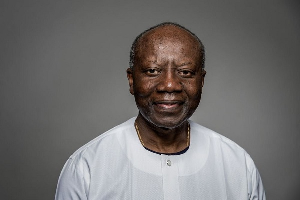Reference: “Chieftaincy institution has outlived its usefulness - Kwesi Pratt”; [Ghanaweb General News of Friday, 8 November 2013; Source: peacefmonline.com]
While agreeing in part with Kwesi Pratt, the question that begs asking is this......
*Even if most Ghanaians agree that the institution of chieftaincy has “outlived its usefulness”, how can the government “cease supporting the Chieftaincy institution”, without pushing it into oblivion; and, by so doing, without the government inadvertently helping to push a dagger into the heart of Ghana’s [cultural] heritage and destroy it?
As a result of Kwesi Pratt’s condemnation of chieftaincy, as reported in the news report, he is said to have “called on the state to cease supporting the Chieftaincy institution”; because, as noted by Kwesi Pratt, “its practices and certain aspects of its customs are in contravention of the 1992 constitution”.
Kwesi Pratt, allegedly, cites in support of his condemnation of chieftaincy the fact that the institution “discriminates against blind people, discriminates against albinos, and discriminates against hunchbacks and so on”...... practices which he (Kwesi Pratt) considers to be “in contravention of the 1992 constitution”.
In my opinion, in view of the fact that the institution occupies a pivotal position in our customs and traditions, chieftaincy has become the heart and the embodiment of our national heritage. Thus, abolishing it would be akin to pushing a dagger into one’s own heart to commit suicide. Wherever they are in Ghana, chiefs head the communities they represent. *Abolishing the institution of chieftaincy, or doing anything that has the effect of undermining the traditional importance of the institution can, and would be politically traumatic; if not ‘tsunamic’.
I personally believe that no government in Ghana, military or civilian, can muster the courage to attempt to abolish chieftaincy, or even directly ‘demean’ it in any form whatsoever. In view of the political difficulty of abolishing chieftaincy in Ghana, we [as a country] must reform and modernise the institution, in order to make it relevant to the nation, and useful for the development of Ghana as a unique modern state.
Towards the reformation and modernisation of chieftaincy, and as a first step, I suggest that all chiefs in Ghana should be elected by all citizens of all communities over which the traditional authority of such chiefs extend. To facilitate such election and make its execution peaceful, the government should open a register of all chiefs at any contemporary moment of time..... a register of contemporary sitting chiefs in Ghana that shows, in addition, all members of the various royal families, clans, or gates that are part of the eligible group of contemporary ‘royals’ who can ascend to the thrones occupied by the various contemporary chiefs in various parts of the country. Such a registration exercise should not be done through the Electoral Commission, in my view. Instead, I suggest that it should be handled by a completely new public body set up and charged with the role of working out the conduct of, and the modalities for the election of chiefs in Ghana, as well as the task of conducting such elections in future.
I believe that chiefs in Ghana can be elected by local communities, and from members of royal families, clans or gates, as Ghanaian tradition requires. I also believe that it can be done outside the influence of political parties. The advantages derivable from electing chiefs in future would be numerous, if all Ghanaians, including chiefs themselves were to endorse the idea. *Four principal benefits that are likely to be reaped from the election of chiefs, among the numerous advantages, are.......
*Firstly, it would reduce the incidence of chieftaincy disputes emanating from installation of new chiefs and distoolment of existing ones. *Secondly, it would force chiefs to think twice when they are tempted to engage in [bad] practices and habits that tend to diminish the respect Ghanaians hold for traditional rulers, or stop them from acting in contravention of the 1992 Constitution and other laws of the country. *Thirdly, it would pave the way for chiefs to be fully absolved into the existing system of local government to allow them to take their rightful places in modern nation building. *Fourthly, it would allow [subservient ] stool subjects to have and exercise control over stool occupants (overlords), who, according to Ghanaian traditional law, are deemed to exercise traditional authority on behalf of their traditional subjects.
Kwesi Pratt is among noted Ghanaians whose deep-seated hatred for our past colonialists and all neo-colonialists force them to reject everything “Western”, except , in the case of Kwesi Pratt, the imported machines and other inputs he uses to produce his newspaper. If this same Kwesi Pratt wants to ostracise and destroy one of the things that make Ghanaians traditionally unique, Ghanaian, or African, then he (Kwesi Pratt) is portraying himself as a hypocrite. All Ghanaians know that certain practices and behaviour of journalists in Ghana, such as “politically biased press reportages”, of which Kwesi Pratt is himself very guilty, constitute abuse of press freedom and, therefore, are in “contravention of the 1992 Constitution”. Journalists in Ghana know these bad journalistic practices and yet they keep engaging in them. *Should this fact be a basis for non-journalists, like me, to call on the government to “cease supporting“ the press in Ghana? *Those that go to equity must go with clean hands.
My view is that, if there are problems in the institution of chieftaincy, we (Ghanaians), including Kwesi Pratt, should all come together and submit ideas and solutions to help our leaders to eradicate those problems, instead of sitting back and calling for the destruction of one of the ‘unique traditions’ that help to identify Ghanaians as Ghanaian and make us proud, as a nation.
Opinions of Saturday, 9 November 2013
Columnist: Darko, Otchere


